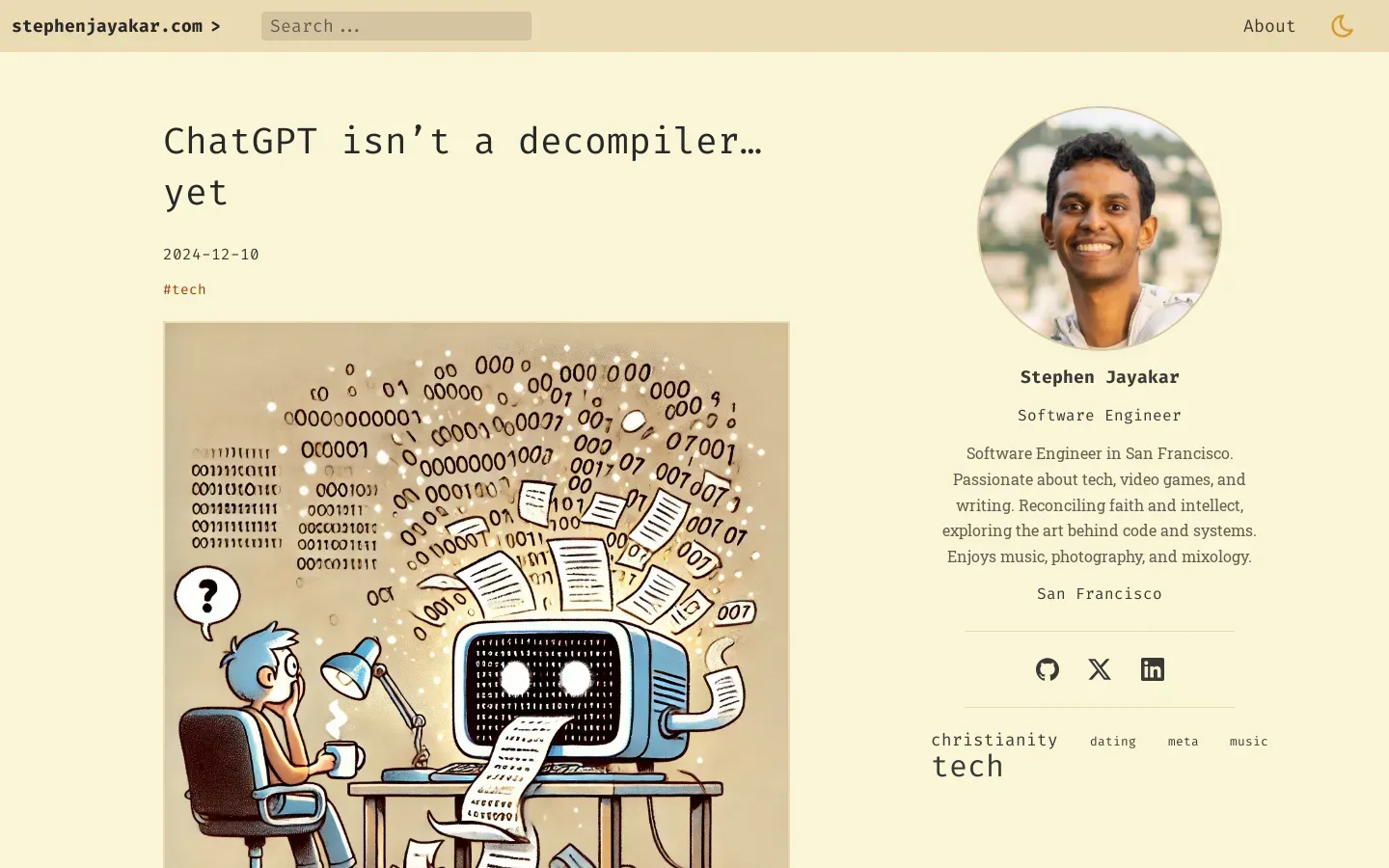
Advancements in Automated Malware Analysis and Decompilation Techniques
/ 4 min read
Quick take - Recent research has advanced automated malware analysis and code decompilation techniques, improving accuracy and efficiency in reverse engineering processes while identifying areas for further exploration and addressing existing limitations.
Fast Facts
- Recent research has advanced automated malware analysis and code decompilation, improving accuracy and efficiency in reverse engineering for cybersecurity professionals.
- Key methodologies included iterative prototyping, assembly language comparison for scoring, and the implementation of a state machine for process automation.
- Findings indicated significant improvements in automated analysis capabilities, with enhanced accuracy in code generation and reduced manual intervention.
- Limitations were noted, such as challenges in handling diverse malware types and the need for refinement in the ASM scoring system.
- Future research areas include exploring alternative AI models and retrieval-augmented generation techniques to further enhance decompilation processes.
Advancements in Automated Malware Analysis and Decompilation Techniques
In a significant leap for cybersecurity and software development, recent research has unveiled innovative methodologies aimed at enhancing automated malware analysis and code decompilation. These advancements promise to refine the accuracy and efficiency of reverse engineering processes, addressing critical challenges faced by cybersecurity professionals today.
Methodological Innovations
The research was meticulously structured around several key objectives, each designed to iteratively improve the decompilation process. Initially, researchers developed prototypes that underwent continuous refinement. This iterative approach allowed for gradual enhancements in decompilation capabilities, ensuring that each iteration built upon the successes and lessons of its predecessors.
A pivotal component of the study involved comparing assembly language outputs. By employing a rigorous scoring system, researchers could assess the effectiveness of their decompilation methods against predefined accuracy benchmarks. This comparison was crucial in validating the improvements made throughout the research.
To streamline operations and reduce manual intervention, a state machine model was implemented within the decompilation framework. This automation not only expedited processes but also minimized human error, contributing to more reliable outcomes.
Extensive testing and fine-tuning were conducted across various types of malware and code structures. This comprehensive approach ensured robust performance, highlighting the methodologies’ adaptability to diverse scenarios.
Key Findings and Limitations
The study’s findings indicate significant improvements in automated malware analysis and reverse engineering capabilities. Notably, there was enhanced accuracy in code generation and an increased ability to automate complex processes. These advancements can potentially save time and resources for cybersecurity professionals, allowing them to respond more swiftly to threats.
However, the research also acknowledged certain limitations. Handling diverse malware types remains a challenge, necessitating further refinement of the ASM comparison scoring system. These limitations underscore the need for ongoing research and development in this field.
Future Directions
Looking forward, researchers have identified several promising areas for further investigation. One such area involves exploring alternative artificial intelligence models or hybrid approaches. By combining large language models (LLMs) with traditional decompilation techniques, there is potential to enhance match-based decompilation capabilities significantly.
Another avenue worth exploring is retrieval-augmented generation techniques. This approach aims to provide additional context during code generation, leading to more accurate and reliable outputs. Such innovations could revolutionize how code is analyzed and understood in cybersecurity contexts.
Tools and Frameworks
The research highlighted several critical tools and frameworks integral to these advancements:
-
Automated Malware Analysis and Reverse Engineering: This toolset facilitates rapid detection and analysis of malware, enabling quicker responses to emerging threats.
-
Enhanced Code Auditing Tools: These tools assist developers in identifying security vulnerabilities within code, promoting higher standards of software integrity.
-
Game Security and Anti-Cheat Mechanisms: Focused on protecting online gaming environments from cheating and exploits, this framework safeguards both developers and players.
-
Educational Tools for Learning Assembly and C Programming: Aimed at educating new programmers and cybersecurity professionals, these resources foster a deeper understanding of assembly and C programming intricacies.
Implications for Cybersecurity
The implications of these findings are profound for both cybersecurity and software development sectors. By addressing challenges associated with malware analysis and decompilation, these advancements not only enhance security measures but also contribute to developing more resilient software systems. The integration of innovative approaches promises to equip professionals with better resources to combat cyber threats effectively.
As the landscape of cyber threats continues to evolve, staying informed about these advancements is crucial for professionals seeking to bolster their defenses against increasingly sophisticated attacks.



